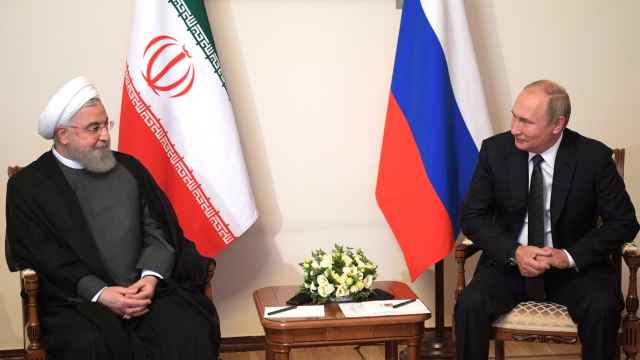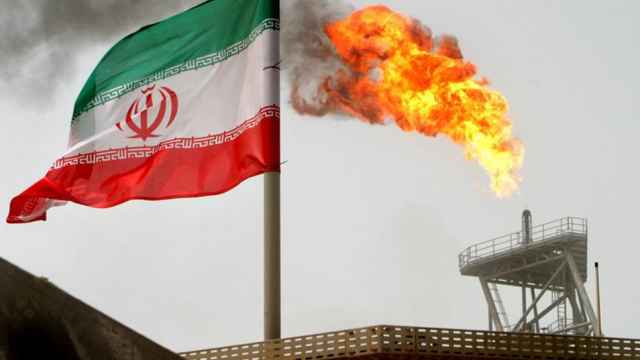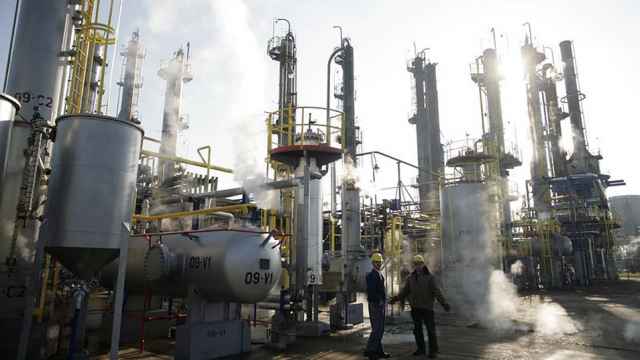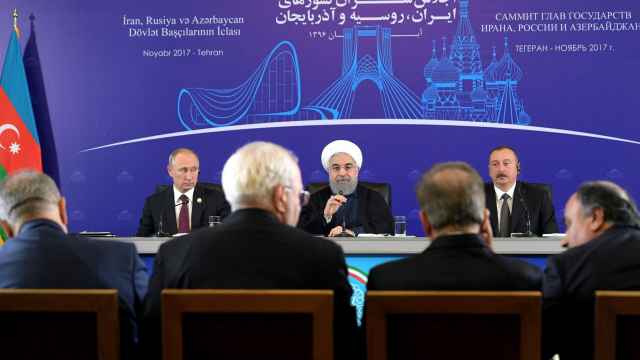Russia and Iran have signed a major oil-for-goods swap in a move that signals strengthening ties between the countries. The deal, announced by Iranian Oil Minister Bijan Namdar Zangeneh on May 25, will allow Iran to bypass U.S.-led sanctions against the Islamic Republic.
The deal has changed considerably since it was first proposed in 2014. Initially, the agreement would have seen Russia import 500,000 barrels of Iranian oil per day in exchange for $1.5 billion per month in goods.
But the signing was delayed. As Iran negotiated with the West and Russia over its nuclear program, the barter deal stalled over concerns it would derail nuclear negotiations.
“Moscow is trying to make the most of a political opportunity,” says Maxim Suchkov, an analyst of Russia’s policy in the Middle East. “Iran is a key player in the world’s most turbulent region. Having Tehran as a partner, rather than a competitor, boosts Russia’s efforts to re-assert its role in the Middle East.”
Skeptical Partners
After the Iran nuclear deal was implemented last year, the U.S. and EU began to ease sanctions on Tehran. In mid-2016 Russian Energy Minister Alexander Novak declared the oil-for-goods swap to be irrelevant: Iran was soon to rejoin the international economy. Russia’s help was no longer needed.
As 2016 went on, however, Iran found its reintegration to be slower than anticipated. Before long, Russia and Iran were negotiating a deal again. And now, with Iran facing regional isolation from the neighboring Gulf States, and the possibility of U.S. President Donald Trump re-imposing sanctions on Tehran, the political impetus for a RussiaIran oil-for-goods swap has returned.
The history of the Russia-Iran oil-forgoods swap is one of Russian reluctance and Iranian insistence. And even when the deal was signed on May 25, the barter’s final terms are much reduced in scope.
Under the revised agreement, Iran will export 100,000 barrels of oil per day to Russia, as opposed to the 500,000 envisioned under the original 2014 framework. As with the previous round of negotiations, it is not clear what exactly Russia is giving Iran in return, but the value of the goods are reportedly $45 billion per year.
The deal caught a second wind in February when Russia’s Novak visited his counterpart in Tehran. According to Russian newspaper Kommersant, Iranian overtures were met with skepticism from Novak. Zanganeh was quoted as saying, “we were ready to sign the contract ... but our Russian counterpart was in a hurry and had to go to the airport.”
The driving force behind Iran’s desire for the barter are the lingering effects of international sanctions on Iran’s banking sector. Though Iran is reintegrating into the international economy, the U.S. has yet to fully lift economic sanctions on all sectors. Foreign banks remain wary of doing business with Iranian firms.
“Moscow is trying to make the most of a political opportunity”
The election of Donald Trump seems to have convinced Iran that an oil-for-goods arrangement with Russia was necessary. Trump campaigned hard against Barack Obama’s nuclear deal with Iran, and the new administration says it is reviewing U.S. policy toward Iran. Although Trump has continued to honor Obama’s sanctions relief, continuity is not guaranteed.
This is why Iranian President Hassan Rouhani raised the question of a barter on a visit to Moscow on March 27. Two days later, speaking at an Arctic development forum, Novak confirmed a deal was in the works. “I believe this year we will have every chance of beginning cooperation,” he said.
Keeping up appearances
With little fanfare, the deal was signed.
The revised agreement, according to Iran’s
PressTV, calls for Russia to play for 50 percent
of the oil in the form of railroad equipment,
heavy machinery, and aerospace technology.
The remaining 50 percent of the volume will
reportedly be paid in cash.
“We are just waiting for the Russian side to implement the deal,” Zanganeh said. “We signed the contract [...] We are waiting for Russian oil companies to send tankers.”
While Iran’s difficult reintegration to the global economy was a driving force behind the decision to sign a barter deal, Suchkov says larger geopolitical issues are at stake. The deal can be read as a means of keeping up appearances after a highly-publicized coming-together in 2014 as Russia found itself slapped with international sanctions.
The oil-for-goods swap can be seen as a way to boost trade between Russia and Iran. Current trade volumes are reportedly low. According to Russia’s Economic Development Ministry, trade nearly doubled last year. Iran’s PressTV state news agency reported the trade volume to be just $2 billion, but that the target is $10 billion annually by 2020.
The oil-for-goods swap isn’t large enough to impact the global oil market, says Nikolay Kozhanov. “It is a deal of local importance. Iran’s budget is empty, it has no means to pay Russia for services and investments. This is a good way to pay for that and serves as an economic foundation for the further development of bilateral relations.
A Message from The Moscow Times:
Dear readers,
We are facing unprecedented challenges. Russia's Prosecutor General's Office has designated The Moscow Times as an "undesirable" organization, criminalizing our work and putting our staff at risk of prosecution. This follows our earlier unjust labeling as a "foreign agent."
These actions are direct attempts to silence independent journalism in Russia. The authorities claim our work "discredits the decisions of the Russian leadership." We see things differently: we strive to provide accurate, unbiased reporting on Russia.
We, the journalists of The Moscow Times, refuse to be silenced. But to continue our work, we need your help.
Your support, no matter how small, makes a world of difference. If you can, please support us monthly starting from just $2. It's quick to set up, and every contribution makes a significant impact.
By supporting The Moscow Times, you're defending open, independent journalism in the face of repression. Thank you for standing with us.
Remind me later.






